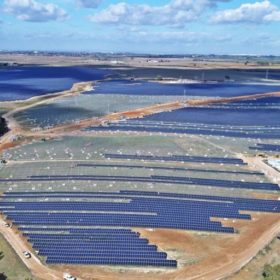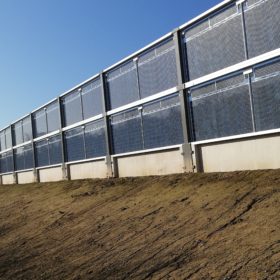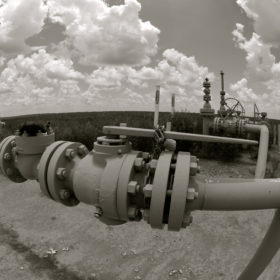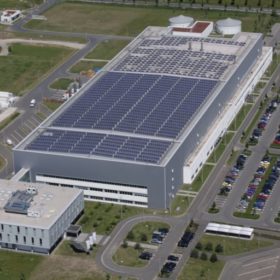European PV market grew 36% to reach 11 GW in 2018
Solarpower Europe has released its estimates for Europe’s installation figures in 2018. A reduction in system prices and a policy push boosted solar across the continent. And if the trade association’s CEO is to be believed, the newfound growth has just begun.
Utility-scale PV all set for growth in Belgium
The energy regulator of Flanders has set a provisional feed-in premium of €0.02595/kWh – to be added to the spot market price – for a 1.35 MW solar project under development in the region. That is considerably more affordable for public support than the feed-in premium of €0.078/kWh the VEA set a year earlier for a 100 MW project under development by Engie.
Bifacial modules ridin’ down the highway
The Dutch government will deploy bifacial PV modules on noise barriers along the country’s main roads. A first, 400m solar array has been built along the A50 near Uden, in the Netherlands’ southern province of Noord-Brabant.
Power-to-gas crucial for solar-based energy system
In the Infrastructure Outlook 2050 study, Gasunie and TenneT say ambitious EU climate targets can only be reached through deeper integration of the power and gas infrastructure, and with power-to-gas technologies supporting renewables. The most bullish scenario for solar states how storage and power-to-hydrogen capacity could be crucial to meet seasonality in supply and demand.
Shell moves to acquire German storage business Sonnen
In May, oil giant Shell invested in German manufacturer Sonnen. Now the 112-year-old company wants to fully acquire the business, subject to Germany’s monopoly authorities. Sonnen said it hopes the deal will accelerate its growth by expanding its market reach and capacity.
Chint’s 103 MW Dutch solar park will use Astronergy panels
Chinese module maker announces start of construction on big project in the Netherlands weeks after announcing production of solar panels at its German Astronergy unit would be halted.
World’s first solar-powered passenger car on roads next year
A Dutch start-up has designed an electric vehicle that runs solely on solar energy, and aims to deliver its first models next year. The car will also be available to lease.
ABN Amro takes majority stake in Dutch PV module testing company Eternal Sun
The controlling interest in Eternal Sun group was acquired by the Dutch bank’s Energy Transition Fund. The value of the transaction was not revealed.
Dutch researchers propose new approach to measure solar potential of urban areas
The system is said to have a maximum estimation error of less than 10% and to reduce the computational requirements for calculating the output of PV systems in complex environments. The approach is based on the correlation between a skyline profile and the annual irradiation received at a particular spot.
Solar rail and roads in the UK to get financial shot in the arm
The Department for Transport has announced funding for research projects which could help decarbonize Britain’s railways and generate power from roads and footpaths. Previously explored with limited success, it is hoped the research will push the frontiers of the field and give a fresh impetus to Britain’s ailing solar sector.










